From Kastriot Dervishi
“The man who sold himself body and soul to the communists, along with his sisters, Sulë Misiri, killed his own father in betrayal, a man whom everyone knows what he was like…”/ The horrific post-war history in Elbasan
Memorie.al / Like all other cities and regions of Albania, Elbasan also had its own political processes at the beginning of the communist regime. Distinguished as an area with higher education than other regions, this city fell prey to the communists’ crackdown in various ways, but always maintained a dissent and an anti-communism that has been little known in studies and writings after 1991. Being, among other things, a city with strong clashes, with strong communist clans, but also with admirable anti-communist resistance, Elbasan in the early years painfully experienced some of the most horrific scenes in its history.
Taken as a whole, the political processes that occurred in this city constitute a dark file of communism here, which, unfortunately, were covered by the dust of deep oblivion and the bypassing by other issues of the same topic. Wishing to leaf through what we will call the “dark file” of communism in Elbasan, we started precisely with the sentencing of the “Group of Youngsters.”
It was a time when the trial was called a “spectacle” and death was called “production.” Anti-communist resistance in Elbasan is encountered in intellectual forms in the organization of propaganda, the distribution of leaflets, national agitation, etc. A city with a larger intellectual profile due to the presence of the country’s first “Normale” school naturally had the profile of resistance on this plane as well.
The Indictment of October 7, 1946
Under the tiresome acronyms “Death to Fascism, Freedom to the People,” as a copy of “Smërt – Fašizmi – Sloboda – Narodni” (Death to Fascism, Freedom to the People), the Prosecutor’s Office of the Elbasan Military Court, through prosecutor Naim Kuçi, notified the Military Court of Elbasan about the joint indictment against:
- Salim Hysen Ceka from Elbasan.
- Apostol Thanas Gega from Elbasan.
- Nazmi Mustafaj from Elbasan.
- Makensen Ali Bungo from Elbasan.
- Tahsim Xhaferr Çiftja from Elbasan.
- Muharrem Hajredin Qafëzezi from Qafëzezi of Korça residing in Elbasan.
- Zija Sulejman Dylgjeri.
- Hasan Ymer Graceni.
- Ali Ahmet Kurti from Elbasan.
- Hiqmet Beqir Bumçi from Elbasan.
The indictment was almost similar for everyone. All individuals were accused of having been “in the service of fascism” during the War, of having carried out counter-revolutionary activities after the war by founding the “terrorist organization of action Albania,” being connected to “reaction,” issuing writings with “anti-people and anti-democratic content,” distributing the group’s leaflets, and sabotaging the construction of the country.
The Investigation of Apostol Gega
On October 3, 1946, prosecutor Naim Kuçi questioned Apostol Gega, 25 years old, a teacher, unmarried, with secondary education, and no prior convictions. During the war, he had been the secretary of the anti-fascist youth of the “Shën – Koll” neighborhood. After leaving this function, in November 1945, he had gone to work as a teacher in Peqin and later in Grabovë. He was fired due to the issue of greeting with a fist.
Another teacher had demanded that the students absolutely greet with a fist, which Gega did not accept. He did not accompany his refusal with strong actions, meaning he never beat the students. Besides this, he did not view the Agrarian Reform favorably either, due to the violation of his property.
His social circle consisted of: Zija Dylgjeri, Selim Ceka, Makensen Bungo, Hasan Graceni, Muharrem Qafzezi, Nazmi Fagu, Virtyt Gjylbegu, Hiqmet Bumçi, Tahsim Çiftja, Ferit Baholli, Misir Voci, Kaliro Noçka.
In Tirana, this circle consisted of: Njazi Hoxha, and Zef Ded Prenga. Their conversations were about commenting on the news and the discussions of foreign ministers at the Peace Conference. Regarding Trotsky’s communism, Gega had said it was scientific, while his murder was a treacherous act by the party. He had met Hasan Graceni through Maneksen Bungo. He had met him a total of 3 times.
Apostoli, commenting on the developments of the Peace Conference in his circle, had said that the world was not coming to an agreement and for this, he had asked for a revolver, for which he had received a promise from Zija Dylgjeri. He had said they would see who Apostol Gega was. Regarding the situation in Tirana, he claimed that the sentencing of Gjergj Kokoshi had made an impression on the people.
The Leaflet Distributed at that Time
One of the leaflets of the Elbasan youth at that time was a strong accusation against the communist regime of Enver Hoxha and against him personally. Its content can be seen to conclude what its formulation contained.
Dear Brothers and Sisters!
As you know, to gain freedom, we made every sacrifice, we did what was necessary to indirectly support and help our brothers who had gone to the mountains to fight the enemy, with the sole purpose of patriotism and nationalism. But as you saw with your own eyes, before these descended into the cities, they formed the pseudo-National Liberation Army, which in reality was the Communist Party behind the scenes, the kidnapper of our freedom and wealth.
We knew what this vile and dirty idea was in practice, but the stinking politics of Moscow caused our boys to link themselves to its destructive cart, in a way that the son would kill his father, as if they had been injected with the brains of a donkey; we have such an example in our city.
The man who sold himself body and soul, with his sisters, Sulë Misiri (name censored – our note), killed his father H. M. (name censored – note) in betrayal, a man whom everyone knows what he was like. With plenty of lies, they deceive the poor villagers and the working and intellectual masses, saying that we are the ones who will make you eat with golden spoons, we will make you all equal, etc.
Finally, when they saw that the people understood and did not swallow these lies, they implemented terror, killing the most honest people and nationalist leaders whom they feared, just as they did now with the military court, because the Russian politics says that if you kill the leaders, the people remain livestock and will remain in our hands.
We saw this stinking policy in practice now with the predatory statute made by the rebel Enver Hoxha, fed out of charity by Ibrahim Biçakçiu, with Koçi Tinsmiths and Sul Ferexhenë of Elbasan and comrades, trumpeting with newspapers, radio, and so-called discussions, that this statute secures the rights of every Albanian, secures and does not violate private property, and makes Albania democratic, etc.
The rebel Enver, or rather, the one sold to Moscow with his comrades, thought that the people were still asleep and did not understand, and with decrees upon decrees, ordinances upon ordinances, he violated and seized all private properties, even without compensation.
It seems they fulfilled the promise they had made to the poor people, that they would make them all equal, like the Spartak athletes, with half shoes and torn clothes. They had no shame, they snatched all the gold with the extraordinary War taxes and then sent it to the mustache Stalin, which amounted to a sum of 280 thousand gold napoleons. They are right, they made everyone equal.
No one has more than 50 napoleons left; they seized the good land from the farmer and gave him the weaker one and less than he had, just so he wouldn’t starve, and the good land was made into a state farm. They also formed cooperatives, prohibited free sale, and then the farmer “won.”
Dear Brothers!
You all see with your own eyes what is happening to this day; you are left on the streets because you are merchants, your shops were plundered. The shelves remained empty because we are owners; your properties were requisitioned, because you are small merchants, sellers. Nothing was left for you, because even the tomatoes are state cooperative property, and because you are a worker, you have to work as a volunteer first, and then eat a piece of bread and wear a pair of rags, like those of Spartak, but now beware lest you also be requisitioned for the Greek and allied front.
Forgive me, you still have houses that have not been requisitioned, and you will work for Father Stalin and predatory communism. I advise you not to sleep. See what is happening outside and inside. War is on the doorstep, Albanian soldiers are crossing the border day by day. Honest nationalists have taken to the mountains, unite and join hands because the time of liberation has arrived.
The Nationalists
Down with Communism
Liberation of Humanity
Apostol Gega, the teacher who stopped students from greeting with a fist
Undoubtedly, Apostol Gega, according to the archival data, was a great idealist. An uncompromising anti-communist, he is perhaps more unique than was thought in Elbasan. It is the revolt of a man educated in the “Normale” school of Elbasan, with a love for the homeland and the nation. And this nurtured love had no connection with communism. The arrest of the Elbasan youth in this manner was not accidental.
It was a punishment also for the “Normale” itself. A sudden punishment, which would be followed by gradual punishment. By then, only a few communists had the situation in Elbasan in their hands. They were so evil that they were ready to dig a grave for each other. Although they ruled Elbasan at that time, they left so many letters against each other that, more than ever, they demonstrate the magnitude of their wickedness.
On August 31, 1946, at 9:45 PM, in the State Security section in Elbasan, Lieutenant T.B. questioned Apostol Gega. In the beginning of his statements, he says that he was a student at the “Normale” during Zog’s time. In 1943, he was accepted as an official at the National Bank in Elbasan, where he served until November 1944. He was reappointed to this duty and worked until April 1945, when he began compulsory military service in the 11th Brigade. He stayed in the Army for only 6 months, as he was then transferred to Education. In November 1945, he was appointed as a teacher in Peqin and after a month, in Grabovë of Gramsh. He served there until the end of April 1946.
He claims to have been against the communist ideology and the communists’ reforms. It is enough to mention that a small field that the regime had seized immediately impoverished the Gega family. Apostol’s social circle had been: Zija Dylgjeri, Nazmi Fagu, Ferit Baholli, Selim Ceka, Muharrem Qafëzezi, Ahmet Kurti, Qemal Zaimi, Tahsim Çiftja, Hiqmet Bumçi, Viktor Zylfi, Mankasen Bungo, Virtyt Gjylbegu, Hasan Dilja, Misir Voci, Kaliro Noçka, while in Tirana, Njazi Hoxha and Ded Zef Prela.
The investigator sought to know why Apostol had spoken badly against the regime, receiving the answer that he had not said that, but worse – that the people were being robbed and kerosene was being sold for 10 Albanian francs per liter. He also dwelled on the distribution of leaflets in Tirana, in honor of Musine Kokalari and Gjergj Kokoshi, to link it to the great authority they enjoyed at that time. Apostol describes all the meetings he had with his comrades for fish hunting.
For Apostol and his comrades, two young men outside of this process had linked their walks and fish hunting, allegedly with the aim of meeting Alush Lleshanaku, who was in hiding. These two young men, known for their left-wing convictions (which would be expressed by receiving high posts shortly after), thus began the betrayal of their same-age comrades, who would receive punishment in the name of great hatred.
Other individuals found it easy to make denunciations in the name of accidental pride or instinctive “duty.” Apostol Gega was the anti-communist idealist who perhaps did not understand that “E freskëta” (The Fresh One) was one of the people who gifted the main denunciation against him and his comrades and, after some time, would continue the “contribution” with other processes, such as those related to the names of Fadil Gurmani, Et’hem Haxhiademi, or even the secondary role in the killing of Alush Lleshanaku.
On October 12, 1946, the Military Court of Elbasan issued its decision no. 344; “In the name of the Albanian people,” under the direction of Major Gjon Banushi and members Teki Biçoku and Pertef Alizoti, against Apostol Gega. The latter had been arrested on August 14, 1946.
The Court “observed” that; Apostol Gega, during the occupation, had been an employee at the National Bank in Elbasan, and with his “devious ways” had managed to participate in anti-fascist meetings held by the bank employees. Without any evidence, the court charged Gega with the espionage of Spiro Gjiknuri, who had nevertheless managed to escape. Continuing without any evidence, the court considered the prohibition of the fist salute, which the teacher Gega had imposed without any pressure on his students in the remote village of Grabovë A, Gramsh, as proof.
The Court observed that; he was in close cooperation with Salim Ceka and Nazmi Fagu, managing to extend to a number of other comrades, such as Zija Dylgjeri, Mankasen Bungo, Muharrem Qafëzezi, Ahmet Kurti, etc., by organizing three-person meetings. In addition, he was accused of giving money to Halit Shëngjini to help the fugitives. Gega was also attributed the call “Kumbona e Kushtrimit” (The Bell of Alarm). This was taken as a call addressed to the people and youth, attacking the so-called “people’s power.”
Judge Gjon Banushi, a former minor servant of fascism, took up anti-fascist positions, even as he subjected people who were truly anti-communists, but who had clearly been anti-fascists, to the sentencing block.
Gega’s Arrest
The reasoning of the decision also provides the manner of Apostol Gega’s arrest. After the distribution of the leaflets, he left that day for the village of Mlizë in Elbasan, where he was arrested. Isolated in the State Security Section in Elbasan, Gega managed to jump out of the second-floor window, making a spectacular escape.
He took refuge at his aunt’s house, where partisans went and arrested him again, after two hours. At the moment of arrest, Gega addressed his handcuffers with these words: “You even came here and found me, you who sold yourselves for pieces of bread to Moscow and Tito.”
The Death Sentence
In conclusion, the Court, in application of Article 15 of Law No. 41, dated January 14, 1945, “On the organization and functioning of military courts” and Article 1 of Law No. 21, dated December 15, 1944, “On the saboteurs of power,” decided on the death sentence.
The High Military Court: Death Sentence for Gega
After the decision for execution by death was given without any evidence, on October 15, 1946, the High Military Court in Tirana, composed of Major Frederik Nosi and Captain I-rë Veledin Zeneli, considered the case, making no changes to the death sentence given to Apostol Gega.
Enver Hoxha Approves the Death Sentence of Apostol Gega
The death sentence of Apostol Gega became final when it was also signed by the Minister of National Defense, General-Colonel Enver Hoxha. Through a special radiogram, he notified the Elbasan Military Court on October 24, 1946, that the death sentence for Apostol Gega was approved, requesting notification of the date of execution and his last will.
Apostol Gega’s Last Words
On November 13, 1946, the prosecutor of the case notified the Prosecutor’s Office of the High Military Court that Apostol Gega had been executed at 8:00 AM that day. His last words had been: “I consider my activity to be ideal, and we must have freedom of thought.”/ Memorie.al




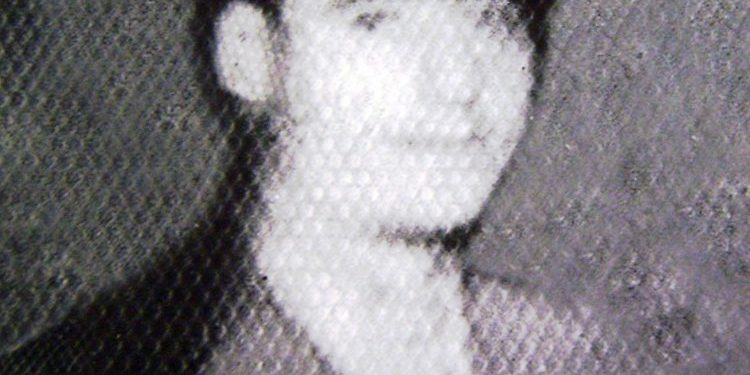
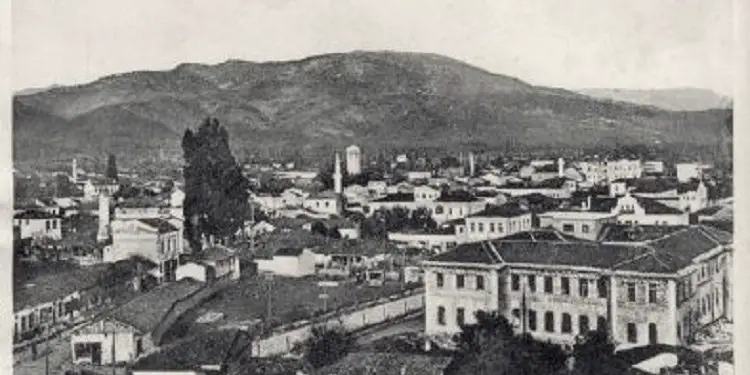
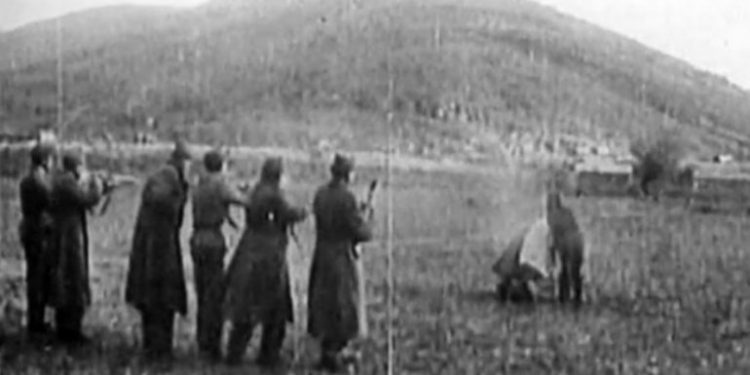
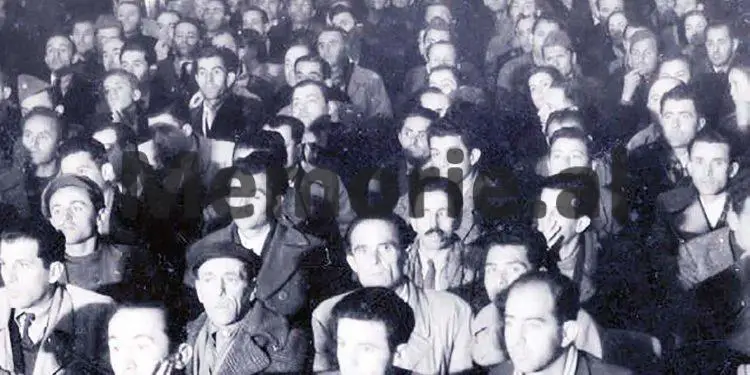
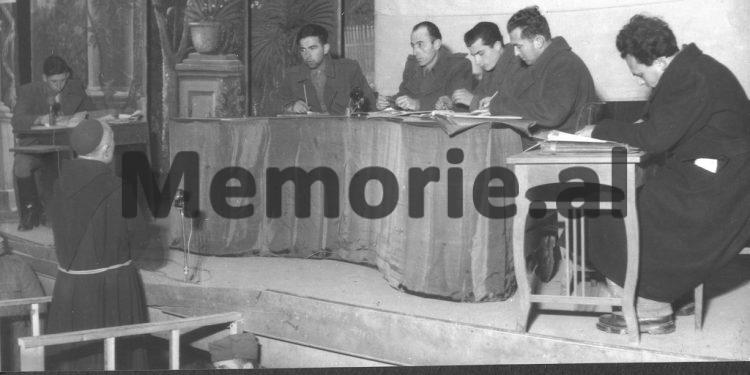
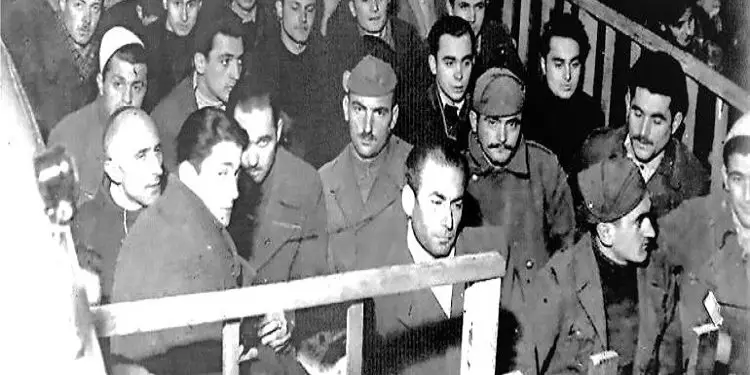
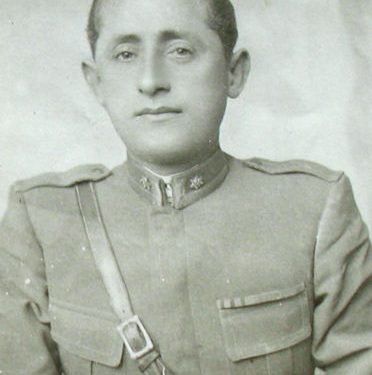
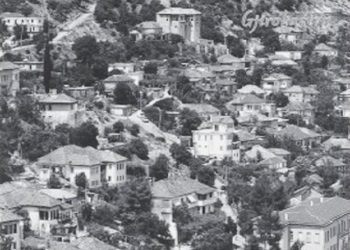
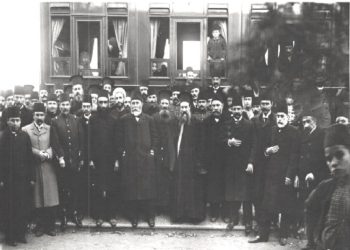
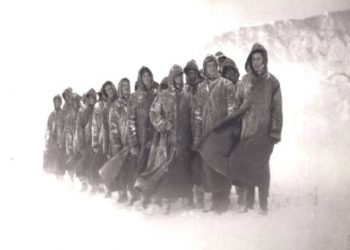

![“When the party secretary told me: ‘Why are you going to the city? Your comrades are harvesting wheat in the [voluntary] action, where the Party and Comrade Enver call them, while you wander about; they are fighting in Vietnam,’ I…”/ Reflections of the writer from Vlora.](https://memorie.al/wp-content/uploads/2025/06/admin-ajax-4-350x250.jpg)

